|
Embarking on a journey towards optimal health involves navigating through various stages of behavior change. At Elevation Health Solutions, we understand the importance of supporting individuals at each stage of their wellness journey. Our health coaching services are tailored to guide clients through the stages of change, helping them achieve lasting results and improved well-being.
Elevation Health Solutions is dedicated to helping individuals achieve optimal health through personalized health coaching services that address the stages of behavior change. By providing support and strategies tailored to each stage, we empower clients to make sustainable lifestyle changes and reach their health goals. Precontemplation: In the precontemplation stage, individuals may not yet recognize the need for change. At Elevation Health Solutions, our health coaches excel at raising awareness, offering education, and encouraging self-reflection to help clients understand the importance of adopting healthier habits. Contemplation: Clients in the contemplation stage are considering making changes but may be unsure where to start. Our health coaches at Elevation Health Solutions are skilled at exploring motivations, setting goals, and addressing ambivalence to support clients in their journey towards behavior change. Preparation: Moving into the preparation stage, clients are actively planning for change. Our health coaches at Elevation Health Solutions assist clients in creating action plans, building self-efficacy, and enlisting social support to ensure they are ready to take the next steps towards optimal health. Action: As clients transition into the action stage, our health coaches at Elevation Health Solutions provide support in implementing plans and making tangible changes to behavior. By helping clients build routines, manage setbacks, and celebrate successes, we empower them to stay committed to their health goals. Maintenance: In the maintenance stage, our health coaches at Elevation Health Solutions work with clients to sustain their new habits and prevent relapse. By reinforcing positive behaviors, managing triggers, and offering ongoing support, we help clients integrate healthy habits into their daily lives for long-term success. Termination: Upon reaching the termination stage and achieving optimal health, our health coaches at Elevation Health Solutions continue to provide guidance and support. By addressing complacency, setting new challenges, and celebrating milestones, we ensure that clients can maintain their healthy habits effortlessly and consistently. Conclusion: Elevation Health Solutions is committed to supporting individuals through the stages of behavior change on their journey towards optimal health. Our health coaching services are designed to provide personalized support and strategies at each stage, empowering clients to make lasting lifestyle changes and improve their overall well-being. Partner with us today to elevate your health and wellness journey.
0 Comments
World Sleep Day is an annual event that highlights the importance of quality sleep for overall health and well-being. As we celebrate World Sleep Day in 2024, it is crucial to emphasize the significance of prioritizing sleep and adopting healthy sleep habits. In this blog post, we will delve into the importance of sleep for health and provide detailed tips to help you achieve a restful night's sleep.
The Importance of Sleep for Health: Sleep plays a vital role in maintaining our physical, mental, and emotional health. It is during sleep that our bodies repair and rejuvenate, allowing us to wake up feeling refreshed and ready to take on the day. Lack of sleep has been linked to a myriad of health issues, including obesity, heart disease, diabetes, and impaired cognitive function. By prioritizing sleep, we can improve our overall health and quality of life. Tips for Better Sleep: 1. Establish a Consistent Sleep Schedule: Try to go to bed and wake up at the same time every day, even on weekends. This helps regulate your body's internal clock and improve the quality of your sleep. 2. Create a Relaxing Bedtime Routine: Engage in calming activities before bed, such as reading, taking a warm bath, or practicing relaxation techniques like deep breathing or meditation. This can help signal to your body that it is time to wind down and prepare for sleep. 3. Create a Comfortable Sleep Environment: Make sure your bedroom is conducive to sleep by keeping it cool, dark, and quiet. Invest in a comfortable mattress and pillows to ensure that you are properly supported throughout the night. 4. Limit Screen Time Before Bed: The blue light emitted by screens can disrupt your body's natural sleep-wake cycle. Try to avoid using electronic devices at least an hour before bedtime to help your body relax and prepare for sleep. 5. Watch Your Diet and Exercise: Avoid heavy meals, caffeine, and alcohol close to bedtime, as these can interfere with your ability to fall asleep. Regular exercise can help improve the quality of your sleep, but try to avoid vigorous exercise right before bed. Conclusion: As we observe World Sleep Day in 2024, let us remember the importance of sleep for our health and well-being. By prioritizing sleep and adopting healthy sleep habits, we can improve our overall quality of life and enjoy the numerous benefits that come with a restful night's sleep. Implementing the tips outlined in this blog post can help you achieve better sleep and wake up feeling refreshed and energized each morning. In any health journey, understanding your body composition is crucial. Body composition analysis provides valuable insights beyond just weight, including body fat percentage, lean muscle mass, changes in water weight, and even potential inch measurements. In this blog post, we will explore why body composition analysis is essential, particularly during weight loss journeys. We will also compare and discuss various technologies used to measure body composition, with a focus on Inbody and Styku, services available at Elevation Health Solutions.
Beyond Weight: Understanding Body Composition Analysis Body composition analysis evaluates the percentages of fat, muscle, water, and bone in your body, providing a more accurate representation of your overall health and progress. By focusing on body composition, you can gain a deeper understanding of your body's composition and make more informed decisions about your health goals. Importance of Maintaining Lean Muscle Mass during Weight Loss Preserving lean muscle mass is crucial during a weight loss journey. Body composition analysis enables you to monitor changes in muscle mass accurately. By tracking lean muscle mass, you can ensure that your weight loss efforts primarily target fat while minimizing muscle loss. This information allows for more personalized and effective weight loss strategies. Normal Ranges for Body Fat Percentage The normal ranges for body fat percentage vary depending on gender. For males, a healthy range is typically between 10-20% body fat, while for females, it is between 20-30%. However, it's important to note that individual factors such as age, genetics, and fitness level can affect these ranges. Body composition analysis can help individuals understand their current body fat percentage and work towards achieving a healthy range. Tracking Changes in Water Weight and Inches Body composition analysis helps monitor changes in water weight, which can fluctuate due to factors like hydration, sodium intake, and hormonal changes. By understanding these fluctuations, you can differentiate between actual fat loss and temporary changes in water weight. Additionally, technologies used for body composition analysis, such as Styku, can estimate inch measurements, providing another tangible metric to track progress. Comparing Body Composition Analysis Technologies a. Water Displacement: Water displacement, also known as hydrostatic weighing, measures body composition based on the principle that lean tissue is denser than water, while fat tissue is less dense. This method is highly accurate but requires specialized equipment and may not be easily accessible or convenient for regular monitoring. b. Dexa (Dual-Energy X-ray Absorptiometry): Dexa scans use X-ray technology to measure bone density, fat mass, and lean body mass. It provides precise measurements and is considered the gold standard for body composition analysis. However, it requires specialized equipment and can be costly. c. Bodpod: The Bodpod uses air displacement plethysmography to measure body composition. It is a non-invasive and relatively quick method. While it provides accurate results, it may not be as precise as Dexa scans or as available as BIA technologies. d. BIA/Inbody: Bioelectrical Impedance Analysis (BIA), particularly the Inbody system, estimates body fat percentage, muscle mass, and water distribution by sending a low-level electrical current through the body. Inbody devices have multiple electrodes that are placed on specific points of the body, allowing for a more comprehensive analysis. Inbody devices are widely accessible, cost-effective, and provide quick results. They are non-invasive and suitable for regular monitoring. e. Styku: Styku is a 3D body scanning technology that uses depth sensors to create a detailed 3D model of the body. It provides accurate body measurements, including circumferences, volume, and body fat percentage. Styku's analysis is enhanced by the use of Artificial Intelligence (AI) algorithms, which help interpret the data and provide valuable insights. The AI analysis in Styku allows for a more in-depth understanding of body composition and tracking progress over time. It can identify specific areas of the body where fat loss or muscle gain has occurred, providing targeted information for individuals working towards specific goals. Styku also offers visualization tools, such as side-by-side comparisons and 3D renderings, allowing users to visually track their progress and see changes in body shape. Styku is convenient and can be used for tracking progress over time. Conclusion: Body composition analysis plays a crucial role in any health journey, providing valuable insights beyond just weight. Understanding body fat percentage, maintaining lean muscle mass, and tracking changes in water weight and inches are essential for effective weight loss or muscle gain. Various technologies, including Inbody and Styku, offer accurate and accessible body composition analysis. At Elevation Health Solutions, we prioritize the use of these technologies to provide our clients with personalized and informed guidance on their health journeys. A good night's sleep is essential for our overall well-being and productivity. However, many of us struggle to get the quality sleep we need. In this blog post, we will delve deeper into the topic of sleep masks and how they can help you achieve a restful sleep. We will discuss the benefits of using sleep masks, the science behind their effectiveness, and provide tips on choosing the right sleep mask for your needs. Additionally, we will share a link to Manta Sleep Masks, a brand that we endorse for their exceptional quality and comfort. Benefits of Sleep Masks: Sleep masks offer a range of benefits that can significantly improve the quality of your sleep. Firstly, they create a dark environment, blocking out any sources of light that may disrupt your sleep. This is particularly beneficial for those who live in urban areas or have partners who work late shifts. Additionally, sleep masks can help regulate your sleep-wake cycle by signaling to your brain that it's time to sleep. This is especially useful for individuals who struggle with irregular sleep patterns or jet lag. The Science Behind Sleep Masks: Sleep masks work by stimulating the production of melatonin, a hormone that regulates sleep. When your eyes are exposed to darkness, the pineal gland in your brain releases melatonin, signaling to your body that it's time to sleep. By wearing a sleep mask, you create a dark environment that enhances melatonin production, promoting a deeper and more restful sleep. Numerous studies have shown the positive effects of sleep masks on sleep quality and duration. Choosing the Right Sleep Mask: When selecting a sleep mask, it's important to consider your individual needs and preferences. Here are some factors to consider: 1. Comfort: Look for a sleep mask that is made from soft, breathable materials and has an adjustable strap to ensure a comfortable fit. 2. Light Blocking: Opt for a sleep mask that provides complete darkness by effectively blocking out light from all angles. 3. Size and Shape: Choose a sleep mask that fits the contours of your face without putting pressure on your eyes or nose. 4. Durability: Consider the quality and durability of the sleep mask to ensure it will last long-term. Manta Sleep Masks: The Ultimate Choice for Restful Sleep.
We are proud to endorse Manta Sleep Masks as the ultimate choice for achieving a restful sleep. Manta Sleep Masks are designed with the utmost comfort and functionality in mind. They feature a unique modular design that allows for a customizable fit, ensuring maximum comfort for all face shapes and sizes. The masks are made from premium materials that are soft, breathable, and hypoallergenic, ensuring a luxurious and irritation-free experience. In addition to their exceptional quality, Manta Sleep Masks also offer innovative features such as a 100% light-blocking design, adjustable eye cups to prevent pressure on the eyes, and a wide coverage area to block out all sources of light. With Manta Sleep Masks, you can enjoy a truly restful sleep, free from any disturbances. Conclusion: Sleep masks are a simple yet effective tool for achieving a restful sleep. By creating a dark environment and stimulating melatonin production, sleep masks can significantly improve the quality and duration of your sleep. When choosing a sleep mask, consider factors such as comfort, light-blocking capabilities, size, and durability. We highly recommend Manta Sleep Masks for their exceptional quality and comfort. To experience the benefits of Manta Sleep Masks for yourself, click here to visit their website Remember, a good night's sleep is essential for your overall well-being. Invest in a high-quality sleep mask and prioritize your sleep for a healthier and more productive life. Unleashing the Power of Brown and Beige Fat: A Comprehensive Guide to Understanding Body Fat1/17/2024 In this comprehensive guide, we delve into the fascinating world of body fat, exploring its different types and their implications for health. While white fat is the most common and well-known type, our focus extends to the remarkable potential of brown and beige fat. Join us as we uncover the secrets of these metabolic powerhouses and discover how they can revolutionize our approach to health and well-being.
1. White Fat: Energy Storage and More White fat, or white adipose tissue (WAT), serves as a crucial energy storage system, insulation for temperature regulation, and a hormone-secreting organ. However, excessive accumulation of white fat can lead to obesity and associated health risks. 2. Brown Fat: The Metabolic Furnace Brown fat, or brown adipose tissue (BAT), is a unique type of fat that burns calories and generates heat. Packed with energy-burning mitochondria, brown fat acts as a metabolic furnace, increasing our metabolic rate and potentially aiding in weight management. It also plays a role in regulating blood sugar levels, improving insulin sensitivity, and promoting cardiovascular health. 3. Beige Fat: The Hybrid Transformer Beige fat, also known as brite (brown-in-white) fat, is a fascinating hybrid between white and brown fat. It possesses the ability to switch between white and brown characteristics, depending on various stimuli. Beige fat can be induced in white fat cells through cold exposure, exercise, and certain hormones. Like brown fat, beige fat can burn calories and generate heat, making it a potential target for weight management and metabolic health. 4. Activating and Optimizing Brown and Beige Fat: To tap into the potential of brown and beige fat, consider the following strategies: - Engage in regular exercise: Physical activity can stimulate the activation and growth of brown and beige fat. - Exposure to cold temperatures: Cold exposure, such as cold showers or outdoor activities, can activate brown and beige fat. - Adequate sleep: Prioritize quality sleep, as it plays a role in the regulation of brown and beige fat activity. - Optimize nutrition: Incorporate a diet rich in healthy fats, spices, and thermogenic foods to support brown and beige fat function. - Lifestyle factors: Manage stress effectively, maintain a balanced diet, and prioritize overall well-being to support the activation and optimization of brown and beige fat. Conclusion: Understanding the different types of body fat, including white, brown, and beige fat, is crucial for optimizing our health. While white fat stores energy, brown and beige fat act as metabolic powerhouses with numerous health benefits. By embracing a balanced lifestyle, engaging in regular exercise, optimizing nutrition, and implementing strategies to activate and optimize brown and beige fat function, we can unlock their transformative power. Let us embark on this journey together and harness the potential of brown and beige fat to revolutionize our approach to body fat and overall well-being. Harnessing the Power of Light: Exploring Different Light Therapies for Health and Wellness1/15/2024 In recent years, light therapies have gained popularity as alternative treatments that utilize the power of light to promote healing and improve overall well-being. From photobiomodulation therapy to red light therapy, blue light therapy, UV light therapy, and infrared sauna therapy, these light-based treatments offer a range of benefits for various conditions. In this comprehensive guide, we will delve into the science behind each therapy, highlight their specific health benefits supported by scientific studies, and provide guidance on how to start receiving therapy.
1. Photobiomodulation Therapy: Photobiomodulation therapy, also known as low-level light therapy or cold laser therapy, utilizes specific wavelengths of light to stimulate cellular function and enhance the body's natural healing processes. Scientific studies have shown its effectiveness in reducing pain and improving function in chronic low back pain patients, as well as promoting wound healing in diabetic patients with foot ulcers. To start receiving photobiomodulation therapy, consult with a healthcare professional specializing in this treatment, who will assess your condition and determine the appropriate treatment plan. 2. Red Light Therapy: Red light therapy harnesses red or near-infrared light to stimulate cellular function and promote healing. Scientific studies have demonstrated its ability to improve skin health by reducing wrinkles, increasing collagen production, and rejuvenating the skin. It has also shown promising results in pain relief and wound healing, as well as promoting hair growth in individuals with androgenetic alopecia. To begin red light therapy, consult with a healthcare professional or dermatologist to determine the appropriate treatment plan and device settings. 3. Blue Light Therapy: Blue light therapy targets and eliminates the bacteria responsible for acne, making it an effective treatment for acne and other skin conditions. Scientific studies have confirmed its effectiveness in reducing inflammatory acne lesions and improving acne severity and skin texture when combined with red light therapy. To start blue light therapy, consult with a dermatologist to determine the best treatment plan and device settings for your specific acne condition. 4. UV Light Therapy: UV light therapy utilizes specific wavelengths of ultraviolet light to treat skin conditions such as psoriasis, vitiligo, and eczema. Scientific studies have shown its effectiveness in reducing symptoms and improving quality of life in patients with psoriasis and vitiligo. UV light therapy should always be administered under medical supervision. Consult with a dermatologist or healthcare professional specializing in dermatology to determine the appropriate treatment plan. 5. Infrared Sauna Therapy: Infrared sauna therapy uses infrared light to heat the body directly, promoting detoxification, relaxation, and various health benefits. Scientific studies have demonstrated its effectiveness in reducing pain, fatigue, and improving quality of life in patients with chronic pain conditions. It has also shown positive effects on cardiovascular function and blood pressure reduction. To start infrared sauna therapy, follow the manufacturer's instructions and guidelines for safe and effective use. If you have any underlying health conditions or concerns, consult with a healthcare professional before beginning therapy. Conclusion: Light therapies offer a range of benefits for promoting health and wellness. From the cellular stimulation of photobiomodulation therapy to the skin rejuvenation and pain relief benefits of red light therapy, the acne-fighting properties of blue light therapy, the targeted treatment of skin conditions with UV light therapy, and the detoxification and relaxation benefits of infrared sauna therapy, these therapies provide non-invasive and natural treatment options. When considering any of these therapies, it is crucial to consult with a healthcare professional or specialist who can assess your specific needs and provide personalized recommendations. They will determine the appropriate treatment plan, frequency of sessions, and device settings to ensure optimal results and safety. Remember, always prioritize your health and consult with a healthcare professional before starting any new treatment. Protein is an essential macronutrient that plays a crucial role in various aspects of our health. It is composed of amino acids, which are the building blocks of our body. Protein is involved in many bodily functions, including muscle building, weight loss, and promoting satiety.
One of the primary roles of protein is its importance in building and repairing muscles. When we engage in physical activities such as weightlifting or resistance training, our muscles undergo microscopic damage. Protein helps in repairing and rebuilding these damaged muscle tissues, leading to muscle growth and strength development. This is why protein is often associated with muscle building and is highly valued by athletes and fitness enthusiasts. Protein also plays a significant role in weight loss. It has a high thermic effect, meaning that our body burns more calories to digest and process protein compared to fats and carbohydrates. This increased calorie expenditure can contribute to weight loss and boost metabolism. Additionally, protein helps in preserving lean muscle mass during weight loss, which is crucial for maintaining a healthy body composition. Protein is known to promote satiety, which means it helps us feel fuller for longer periods. Including protein-rich foods in our meals can help control hunger and reduce cravings, making it easier to stick to a calorie-controlled diet. This can be particularly beneficial for individuals trying to lose weight or maintain a healthy weight. There are several sources of protein that can be incorporated into a balanced diet. Some examples of protein-rich foods include: 1. Lean meats: Chicken breast, turkey, lean beef, and pork tenderloin are excellent sources of high-quality protein. 2. Fish and seafood: Salmon, tuna, shrimp, and cod are not only rich in protein but also provide essential omega-3 fatty acids. 3. Eggs: Whole eggs are a complete protein source and can be consumed in various ways. 4. Dairy products: Greek yogurt, cottage cheese, and milk are rich in protein and also provide calcium. 5. Legumes: Beans, lentils, chickpeas, and soybeans are plant-based sources of protein, suitable for vegetarians and vegans. 6. Nuts and seeds: Almonds, peanuts, chia seeds, and hemp seeds are protein-rich options that also provide healthy fats. To ensure you are getting enough protein, you can follow these tips: 1. Calculate your protein needs: The recommended daily intake of protein is around 0.8 grams per kilogram of body weight. However, individuals engaged in intense physical activities may require higher protein intake. 2. Track your protein intake: Use a food diary or a mobile app to track your daily protein consumption and ensure you are meeting your goals. 3. Include protein in every meal: Aim to include a source of protein in each meal, such as lean meats, fish, eggs, or legumes. 4. Opt for lean protein sources: Choose lean cuts of meat, remove visible fat, and opt for low-fat dairy products to reduce saturated fat intake. 5. Snack on protein-rich foods: Incorporate protein-rich snacks like Greek yogurt, nuts, or protein bars to increase your daily protein intake. 6. Consider protein supplements: If you struggle to meet your protein needs through food alone, protein supplements like whey protein powder can be a convenient option. By incorporating a variety of protein sources into your diet and following these tips, you can ensure you are getting enough protein to support muscle building, weight loss, and overall health. Obstructive Sleep apnea, a common yet potentially serious sleep disorder, is often associated with a multitude of health issues, including heart disease, stroke, and diabetes. However, the good news is that lifestyle changes, particularly in nutrition, and weight loss can significantly improve, and in some cases, completely eliminate this condition. At Elevation Health Solutions, we offer comprehensive health coaching and sleep testing services to guide you on your journey towards better sleep and overall health.
The Link Between Weight and Sleep Apnea Numerous studies have established a strong correlation between weight and sleep apnea. A study published in the American Journal of Respiratory and Critical Care Medicine found that a 10% weight gain predicted a six-fold increase in the odds of developing moderate to severe sleep apnea. Conversely, weight loss was associated with a significant decrease in sleep apnea severity. The reason behind this is simple: excess weight, particularly around the neck, can narrow your airway and increase the likelihood of sleep apnea. Therefore, losing weight can help widen your airways and improve your breathing while you sleep. The Power of Weight Loss and Lifestyle Intervention A recent study has shown the profound impact of an interdisciplinary weight loss and lifestyle intervention program on sleep apnea severity in men. The program, which included dietary changes, physical activity, and behavioral therapy, led to significant improvements in sleep apnea symptoms and sleep quality. These findings underscore the effectiveness of weight loss interventions in managing sleep apnea, reinforcing the importance of our comprehensive approach to health and wellness at Elevation Health Solutions. How Much Weight to Lose? The amount of weight loss needed to see improvements in sleep apnea varies from person to person. However, a study in the Archives of Internal Medicine suggests that even a modest weight loss of 10% can significantly reduce sleep apnea symptoms. It's important to remember that every pound lost contributes to the improvement of your sleep quality. The Role of Health Coaching in Lifestyle Change Changing one's lifestyle is easier said than done. This is where health coaching comes into play. At Elevation Health Solutions, our health coaches provide personalized guidance to help you make sustainable lifestyle changes. They can help you set realistic weight loss goals, develop a balanced diet, and create an exercise regimen that fits your needs and preferences. Health coaching is not just about weight loss. It's about empowering you to take charge of your health, providing you with the knowledge and skills to make informed decisions about your diet, physical activity, and overall lifestyle. The Importance of Ongoing Sleep Testing While lifestyle changes and weight loss can significantly improve sleep apnea, it's crucial to continuously monitor your condition. At Elevation Health Solutions, we offer comprehensive sleep testing services to assess the severity of your sleep apnea and track your progress. Regular sleep testing allows us to fine-tune your treatment plan, ensuring that it remains effective as your body changes. It also provides a tangible measure of your improvement, giving you the motivation to continue on your journey towards better health. Conclusion Sleep apnea is a serious condition, but it's not unbeatable. With lifestyle changes, particularly in nutrition, weight loss, and the right guidance, you can significantly improve your sleep quality and overall health. At Elevation Health Solutions, we're committed to helping you conquer sleep apnea and elevate your health to new heights. Remember, the journey towards better health is a marathon, not a sprint. It takes time, effort, and commitment. But with the right support, you can achieve your health goals and enjoy a good night's sleep. Creatine is a widely popular supplement known for its ability to enhance athletic performance and promote muscle growth. In this blog post, we will delve into what creatine is, its discovery, the benefits of taking it as a supplement, and provide tips on how to effectively incorporate it into your fitness routine. Additionally, we are proud to offer high-quality creatine supplements from DotFit and Thorne through our company, Elevation Health Solutions.
What is Creatine? Creatine is a naturally occurring compound found in small amounts in certain foods, such as meat and fish. It is also produced by the body in the liver, kidneys, and pancreas from the amino acids glycine, arginine, and methionine. Creatine plays a crucial role in providing energy to cells, particularly during high-intensity exercise. Discovery of Creatine: Creatine was first discovered in 1832 by a French scientist named Michel Eugène Chevreul. However, it wasn't until the 1990s that creatine gained significant attention as a sports supplement due to its performance-enhancing properties. Benefits of Creatine Supplementation: 1. Increased Muscle Strength and Power: Numerous studies have shown that creatine supplementation can significantly increase muscle strength and power. It enhances the body's ability to produce adenosine triphosphate (ATP), the primary source of energy for muscle contractions. This leads to improved performance in activities that require short bursts of intense effort, such as weightlifting and sprinting. 2. Enhanced Muscle Growth: Creatine has been shown to stimulate protein synthesis, leading to increased muscle mass and size. It also promotes water retention within muscle cells, creating a more anabolic environment for muscle growth. 3. Improved Exercise Capacity: Creatine supplementation has been found to enhance exercise capacity, allowing individuals to perform more repetitions or sustain higher intensity for longer durations. This can be particularly beneficial for athletes and individuals engaged in high-intensity training. 4. Faster Recovery: Creatine has been shown to reduce muscle damage and inflammation, leading to faster recovery between workouts. This allows for more frequent training sessions and overall better progress. Research on Creatine: Several studies have investigated the effects of creatine supplementation on athletic performance and muscle growth. For example: - A meta-analysis published in the Journal of Strength and Conditioning Research concluded that creatine supplementation significantly increased strength and power in resistance-trained individuals. - A study published in the Journal of the International Society of Sports Nutrition found that creatine supplementation improved muscle strength and body composition in older adults. - Research published in the Journal of Applied Physiology demonstrated that creatine supplementation increased muscle fiber size and improved exercise performance in elite swimmers. Tips for Effective Creatine Supplementation: 1. Dosage: The most common dosage for creatine supplementation is 3-5 grams per day. This can be taken in a single dose or divided into smaller doses throughout the day. It is recommended to start with a loading phase of 20 grams per day for 5-7 days to saturate the muscles, followed by a maintenance phase of 3-5 grams per day. 2. Timing: Creatine can be taken at any time of the day, as long as it is consistently consumed. Some individuals prefer to take it before or after their workouts to maximize its benefits. However, there is no significant difference in absorption or effectiveness based on timing. 3. Hydration: It is essential to stay adequately hydrated while taking creatine, as it can cause water retention within the muscles. Drinking plenty of water throughout the day will help maintain optimal hydration levels. 4. Cycling: Creatine supplementation does not require cycling on and off like some other supplements. It can be taken continuously without adverse effects. However, if you decide to discontinue creatine use, there is no need for a gradual tapering-off period. Conclusion: Creatine is a powerful supplement that can significantly enhance athletic performance, promote muscle growth, and aid in recovery. With its proven benefits and extensive research backing its efficacy, incorporating creatine into your fitness routine can take your training to the next level. At Elevation Health Solutions, we offer high-quality creatine supplements from DotFit and Thorne, ensuring you have access to the best products on the market. Remember to follow the recommended dosage, stay hydrated, and enjoy the benefits of this remarkable supplement. Disclaimer: Before starting any new supplement, it is essential to consult with a healthcare professional to ensure it is safe and suitable for your individual needs. As we embark on a new year, it's the perfect time to prioritize our health and well-being. While exercise and nutrition often take center stage, we must not overlook the importance of sleep. Quality sleep is a vital pillar of overall health, alongside exercise and nutrition. It plays a crucial role in our recovery, daytime energy levels, and overall productivity. In this blog post, we will explore the significance of sleep and provide practical tips and suggestions to help you establish good sleep habits for a restful and rejuvenating new year.
The Importance of Sleep: Sleep is not just a period of rest; it is a fundamental process that allows our bodies and minds to recharge and repair. Here are a few reasons why sleep should be a top priority: 1. Physical Recovery: During sleep, our bodies undergo essential repairs and restoration. Adequate sleep promotes muscle growth, tissue repair, and the release of growth hormones, which are crucial for overall physical well-being. 2. Mental Clarity and Cognitive Function: Sleep plays a vital role in cognitive function, memory consolidation, and learning. It enhances our ability to focus, make decisions, and solve problems effectively. 3. Emotional Well-being: Lack of sleep can lead to increased irritability, mood swings, and decreased emotional resilience. Prioritizing sleep can significantly improve our emotional well-being and overall mental health. Tips for Establishing Good Sleep Habits: 1. Stick to a Consistent Sleep Schedule: Maintaining a regular sleep schedule helps regulate your body's internal clock. Aim to go to bed and wake up at the same time every day, even on weekends. This consistency will train your body to recognize when it's time to sleep and wake up, promoting better sleep quality. 2. Create a Sleep-Friendly Environment: Ensure your bedroom is a sanctuary for sleep. Keep it cool, dark, and quiet. Invest in a comfortable mattress, pillows, and bedding that suit your preferences. Consider using blackout curtains, earplugs, or a white noise machine to minimize disturbances. 3. Establish a Relaxing Bedtime Routine: Create a pre-sleep routine that signals to your body that it's time to wind down. Engage in calming activities such as reading a book, taking a warm bath, or practicing relaxation techniques like deep breathing or meditation. Avoid stimulating activities, such as using electronic devices or watching intense TV shows, close to bedtime. 4. Limit Exposure to Blue Light: The blue light emitted by electronic devices can disrupt your sleep-wake cycle. Minimize exposure to screens, such as smartphones, tablets, and laptops, at least an hour before bedtime. Consider using blue light filters or wearing blue light-blocking glasses if you must use electronic devices. 5. Avoid Stimulants and Heavy Meals: Caffeine and nicotine can interfere with your ability to fall asleep and stay asleep. Limit your consumption of these substances, especially in the afternoon and evening. Additionally, avoid heavy meals close to bedtime, as they can cause discomfort and disrupt sleep. 6. Engage in Regular Exercise: Regular physical activity can promote better sleep. Aim for at least 30 minutes of moderate-intensity exercise most days of the week. However, avoid exercising too close to bedtime, as it can increase alertness and make it harder to fall asleep. 7. Manage Stress and Worry: Stress and worry can significantly impact sleep quality. Prioritize stress management techniques such as practicing mindfulness, journaling, or engaging in relaxation exercises. Create a peaceful bedtime routine that allows you to unwind and let go of the day's stressors. 8. Seek Help from a Professional: If you have significant sleep concerns we encourage you to take our free online sleep assessment and schedule a home sleep test if indicated. Conclusion: As we embark on a new year, let's make sleep a priority in our quest for better health and well-being. By establishing good sleep habits, we can reap the countless benefits that quality sleep offers. Remember, consistency, a sleep-friendly environment, and a relaxing bedtime routine are key to achieving restful nights and energized days. Embrace the journey of improving your sleep habits, and may the new year bring you the gift of rejuvenating sleep and boundless energy. Remember, a well-rested mind and body are the foundations for a fulfilling and successful year ahead. Sweet dreams and happy sleeping! |
AuthorDamian Solorzano is Health and Wellness Influencer, Respiratory Specialist and Health Coach who is passionate about optimizing personal health. Categories
All
Archives
March 2024
|
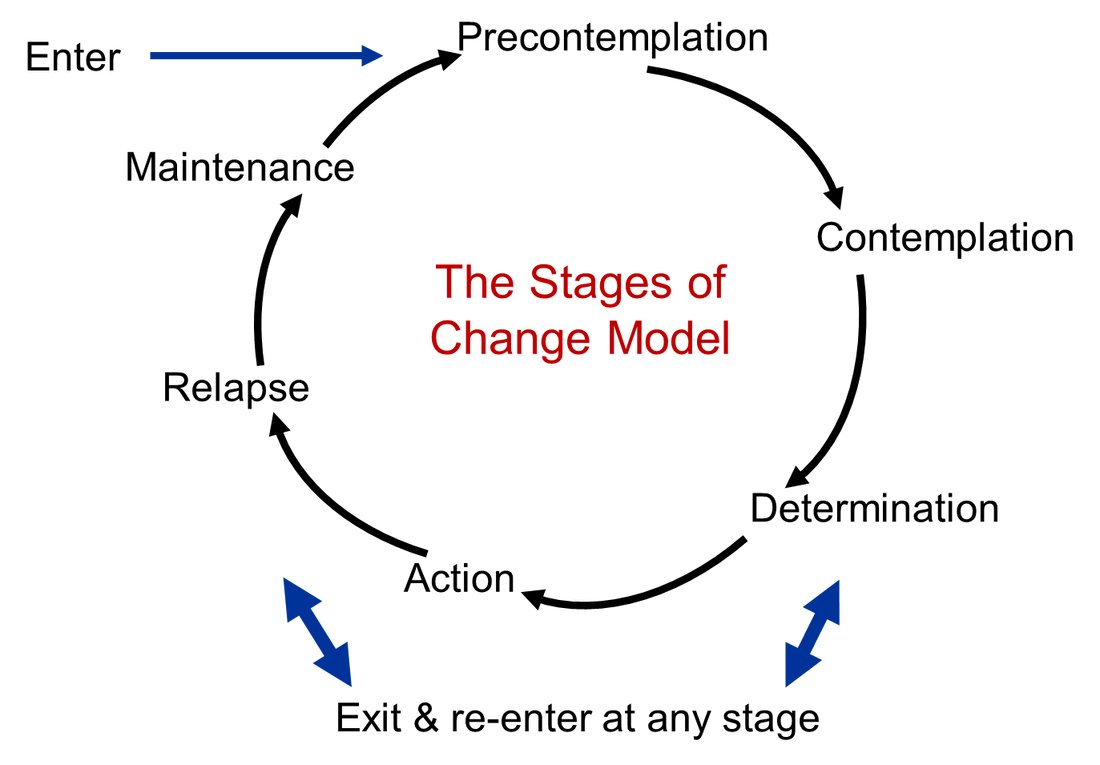

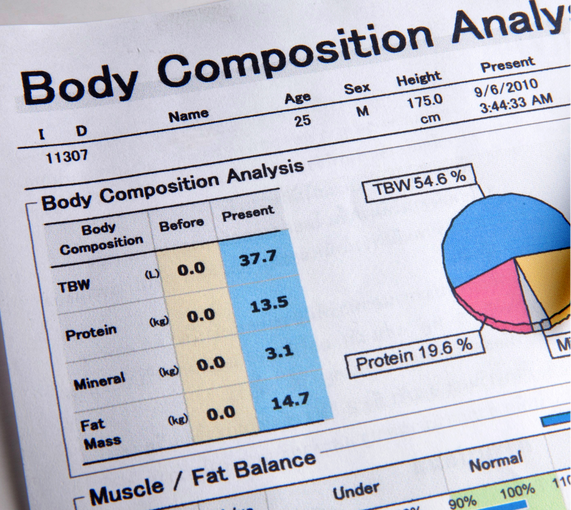
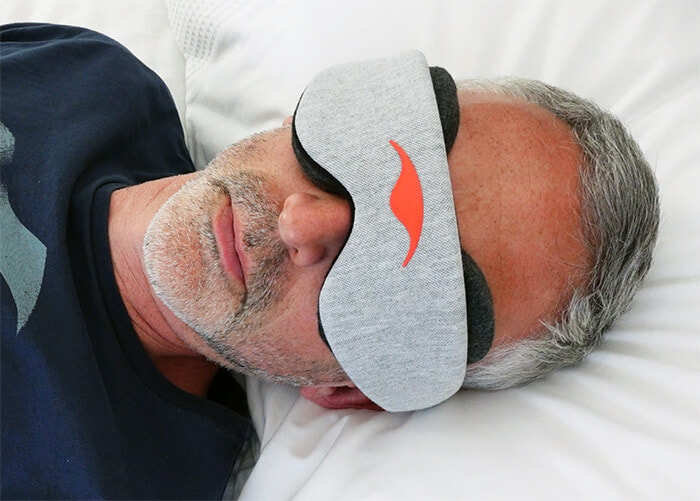
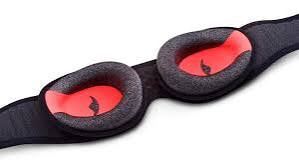
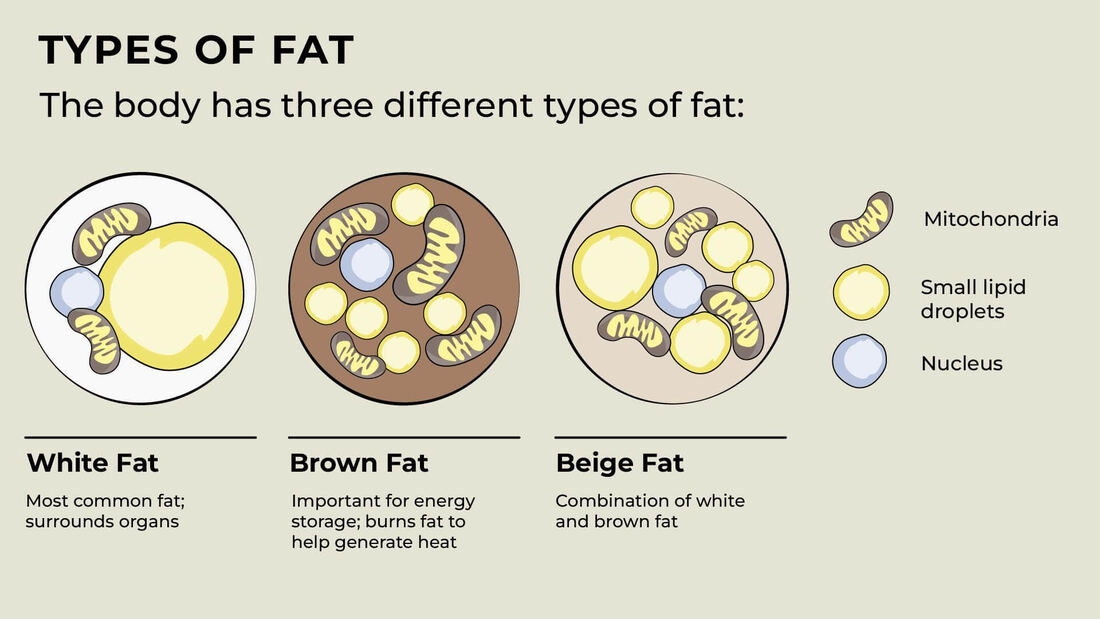
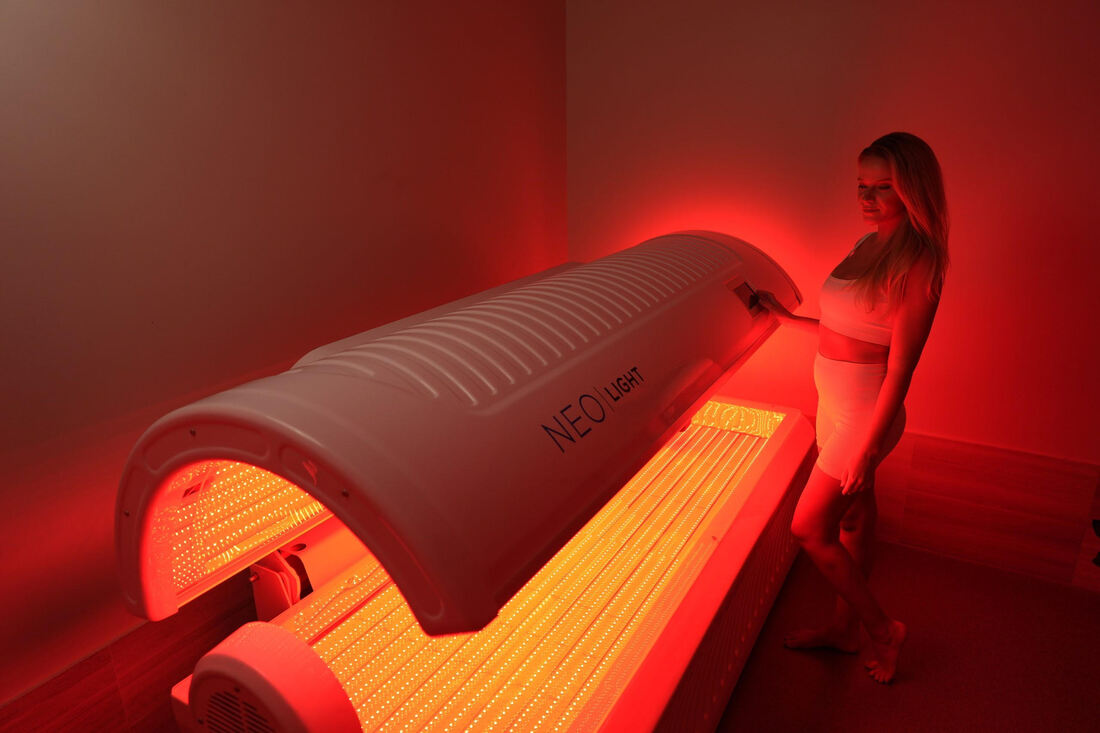
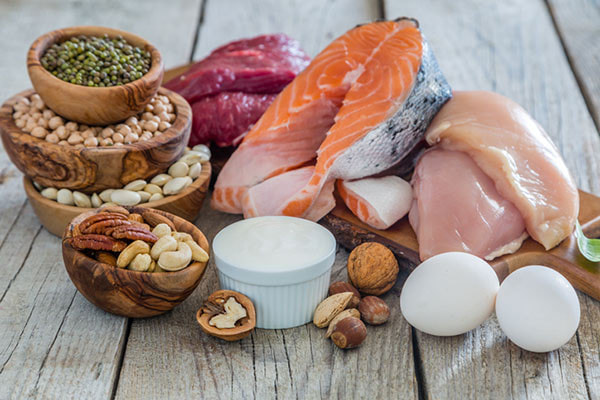

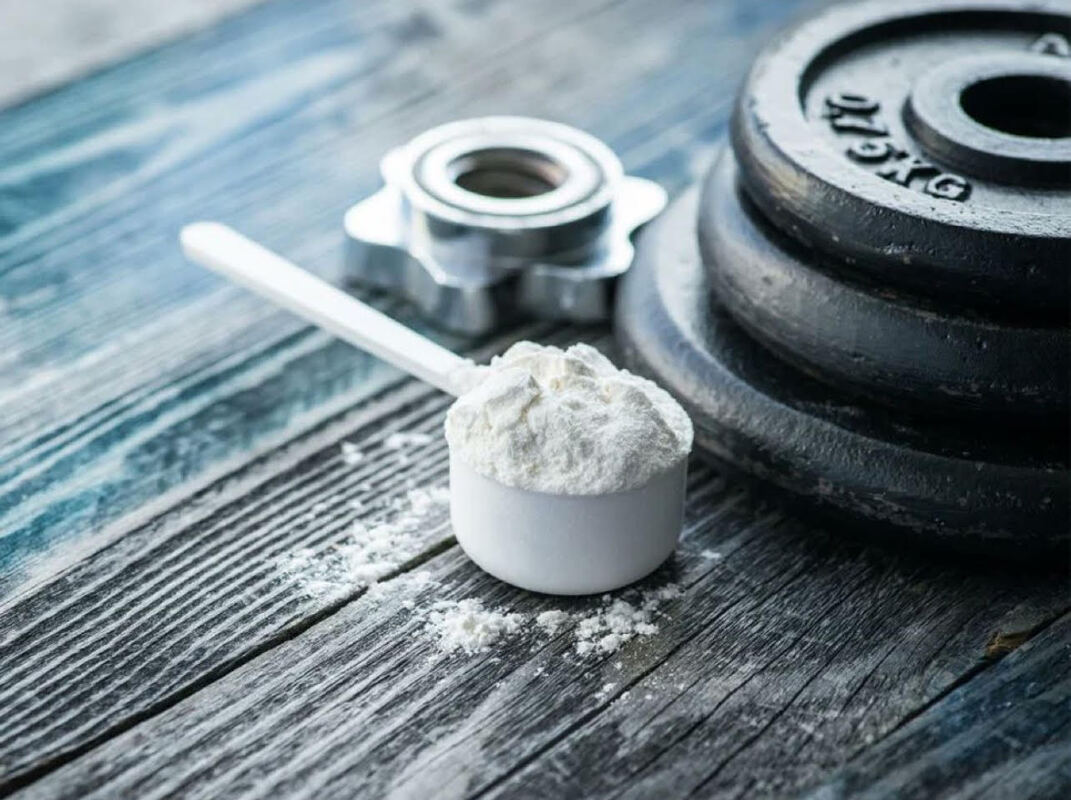

 RSS Feed
RSS Feed